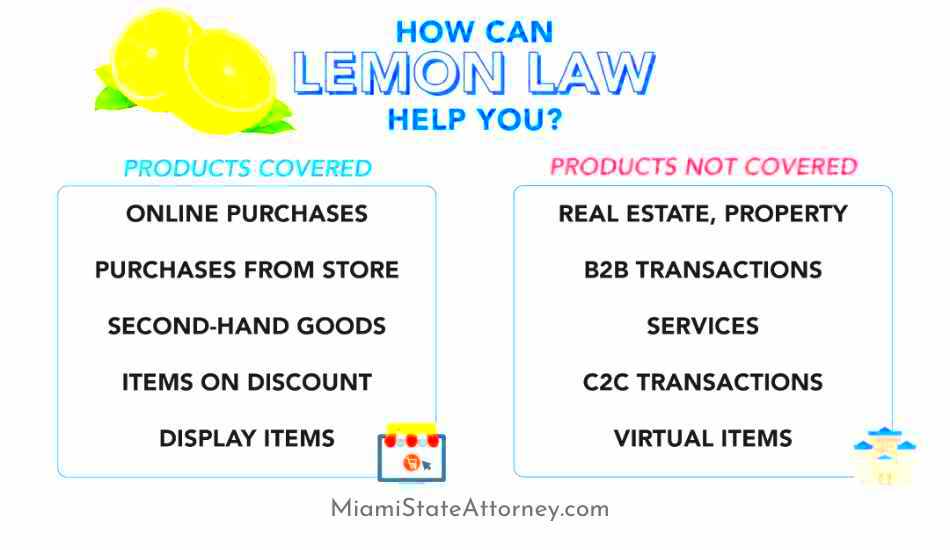Lemon Law for Appliances and How It Can Help You
Lemon law is a legal protection designed to help consumers when they purchase defective products, including appliances. If an appliance fails to perform as promised and cannot be repaired after a reasonable number of attempts, it may be considered a “lemon.” This law varies by state, so understanding your local lemon law is essential. In this post, we will explore how lemon laws apply to appliances and what steps you can take if you find yourself with a faulty product.
Who Can Benefit from Lemon Law for Appliances

Anyone who has purchased a defective appliance may benefit from lemon law protections. Here are some key groups that often find these laws helpful:
- Homeowners: Those who buy appliances for their homes, such as refrigerators, washers, or dryers, can seek relief if their appliance is a lemon.
- Renters: Even if you rent, appliances provided by the landlord may fall under lemon law protections.
- Consumers: Anyone who buys an appliance from a retailer or manufacturer may have rights under lemon law.
Understanding your rights is crucial. If you encounter repeated issues with your appliance that the manufacturer or retailer cannot resolve, you might be eligible for a refund or replacement under lemon law.
What Qualifies as a Lemon Appliance
For an appliance to be classified as a lemon, it must meet specific criteria. Here are the main factors that determine if your appliance qualifies:
- Defects: The appliance must have defects that significantly impair its use, value, or safety.
- Repair Attempts: The manufacturer or retailer must have had a reasonable number of attempts to repair the appliance. This usually means two to four attempts, depending on the state.
- Time Frame: The appliance should have been in service for a specific period, typically within the warranty period.
If your appliance meets these conditions, it may be considered a lemon. It’s important to keep records of all repairs and communications with the manufacturer or retailer to support your claim.
Steps to Take When Your Appliance is a Lemon
Discovering that your appliance is a lemon can be frustrating, but there are clear steps you can take to address the issue. Following these steps will help ensure that your rights are protected and that you have a solid case.
- Document Everything: Keep detailed records of all issues with the appliance. Note the dates, times, and descriptions of the problems, along with any repair attempts made.
- Contact the Manufacturer or Retailer: Reach out to the company that sold you the appliance. Explain the problems you’re experiencing and ask for assistance in resolving the issue.
- Request Repairs: Give the manufacturer or retailer a chance to fix the appliance. This may involve sending a technician to inspect and repair the item.
- Review Your Warranty: Understand the terms of your warranty, including what it covers and the time frames for repairs.
- Consult a Lemon Law Attorney: If the appliance remains unresolved after several repair attempts, consider speaking with an attorney who specializes in lemon law to explore your options.
Taking these steps can strengthen your case and increase your chances of receiving a refund or replacement for your defective appliance.
Filing a Lemon Law Claim for Your Appliance
If your appliance qualifies as a lemon and you’ve exhausted all repair options, it may be time to file a lemon law claim. Here’s how to do it:
- Gather Documentation: Collect all relevant documents, including receipts, warranties, repair records, and any correspondence with the manufacturer or retailer.
- Check State Requirements: Lemon laws vary by state, so familiarize yourself with the specific requirements in your area. This may include the number of repair attempts needed or the time frame for filing a claim.
- Draft Your Claim: Prepare a detailed claim that outlines the appliance issues, repair attempts, and your desired outcome (refund or replacement).
- Submit the Claim: File your claim with the appropriate agency or directly with the manufacturer. Ensure you keep copies of everything submitted.
- Follow Up: After filing, stay in touch with the company or agency handling your claim. Be persistent and keep records of all communications.
Filing a lemon law claim may seem daunting, but with proper preparation, you can navigate the process more easily.
What to Expect During the Lemon Law Process
Once you’ve filed your lemon law claim, it’s natural to wonder what happens next. Understanding the process can help alleviate some of the stress involved. Here’s what to expect:
- Investigation: The manufacturer or retailer will likely investigate your claim. They may review your documentation and consult with service technicians.
- Response Time: Expect a response from the company within a reasonable time frame. This can vary by state and company policies.
- Settlement Offer: If your claim is valid, the company may offer a settlement. This could be a full refund, a replacement appliance, or another form of compensation.
- Mediation or Arbitration: If you can’t reach a satisfactory agreement, some states require mediation or arbitration before pursuing legal action.
- Legal Action: If all else fails, you may need to consider legal action. An attorney experienced in lemon law can guide you through this process.
While the lemon law process can be lengthy, knowing what to expect can make it more manageable and help you advocate for your rights.
Common Misconceptions about Lemon Law for Appliances
There are several misconceptions surrounding lemon laws for appliances that can confuse consumers. Understanding the facts can help you navigate the process better. Let’s clear up some of the most common myths.
- Lemon Laws Only Apply to Cars: Many people think lemon laws are exclusive to automobiles. In reality, lemon laws can also apply to appliances, electronics, and other consumer goods.
- You Have to Sue to Get Help: While lawsuits can be a part of the lemon law process, many claims are settled without going to court. Manufacturers often prefer to resolve issues quickly to maintain their reputation.
- All Defects Qualify as Lemon Issues: Not every problem qualifies. The defects must significantly impair the appliance’s use, safety, or value, and there must be a reasonable number of repair attempts.
- You Must Act Immediately: While there are time limits, you don’t need to act the moment an issue arises. Just be sure to keep thorough records and know your state’s regulations.
- Once You File a Claim, You’re Guaranteed Compensation: While filing a claim is the first step, it doesn’t guarantee a refund or replacement. Each case is evaluated based on its specific circumstances.
By debunking these misconceptions, you can better understand your rights and make informed decisions regarding your appliance issues.
How Lemon Law Can Protect Consumers
Lemon laws serve as a crucial safety net for consumers, providing essential protections when appliances fail to meet standards. Here’s how these laws help:
- Consumer Rights: Lemon laws empower consumers by ensuring they have recourse when products are defective. You’re not stuck with a faulty appliance.
- Financial Relief: If your appliance is deemed a lemon, you may receive a refund or replacement, protecting you from financial loss.
- Encouraging Quality: Lemon laws encourage manufacturers to maintain high quality standards. Knowing they may face legal action can motivate companies to produce reliable products.
- Simplified Process: Lemon laws often provide a straightforward process for addressing issues. Many states offer consumer protection agencies that can guide you through filing a claim.
- Promoting Accountability: These laws hold manufacturers accountable for their products, ensuring they take responsibility for defects and customer satisfaction.
By providing these protections, lemon laws help create a fair marketplace where consumers can shop with confidence.
Frequently Asked Questions
Have questions about lemon law for appliances? You’re not alone! Here are some frequently asked questions to help clarify your concerns:
What should I do first if I think my appliance is a lemon?
Start by documenting all issues and repair attempts. Then, contact the manufacturer or retailer to discuss the problems you’re experiencing.
How long do I have to file a claim?
The time frame for filing a lemon law claim varies by state. Generally, you should act within the warranty period or a specific time after the last repair attempt.
What kind of compensation can I expect?
If your appliance qualifies as a lemon, you may receive a full refund, a replacement appliance, or a cash settlement depending on your state’s laws.
Do I need a lawyer to file a lemon law claim?
While you can file a claim on your own, consulting a lemon law attorney can be beneficial, especially if you face challenges during the process.
Can I file a claim for an appliance I bought used?
It depends on the state and the warranty status. Some lemon laws apply only to new appliances, while others cover used products under specific conditions.
If you have more questions, don’t hesitate to reach out to a legal expert or consumer protection agency for guidance.
Conclusion
Understanding lemon laws for appliances can empower you as a consumer. These laws are designed to protect your rights and ensure that you don’t suffer financially from defective products. If you believe your appliance is a lemon, remember to document all issues and repair attempts, reach out to the manufacturer or retailer, and, if necessary, file a claim. Knowing the common misconceptions and the protections lemon laws offer can help you navigate the process with confidence. By being informed, you can take the necessary steps to hold companies accountable and seek the compensation you deserve.


